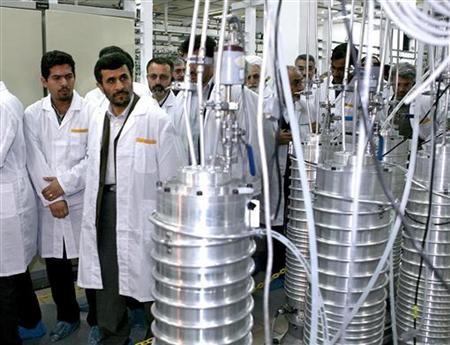 It’s not a good sign when you can no longer differentiate between lunacy or rationality in Iranian foreign policy. The real question, though, is who is to blame. Thus is the case when we examine two foreign policy developments in Iran, both dealing with purported espionage.
It’s not a good sign when you can no longer differentiate between lunacy or rationality in Iranian foreign policy. The real question, though, is who is to blame. Thus is the case when we examine two foreign policy developments in Iran, both dealing with purported espionage.
In the first, we saw that an Iranian court convicted Shane Bauer and Josh Fattal, two Americans, of crossing from Iraq into Iran illegally in 2009, as well as spying for US intelligence. The duo was sentenced to eight years in prison, and it appears that circumstances surrounding prosecution of the third traveler – Sarah Shourd – who did not return to Iran while out on bail, are still up in the air. The second case involves an Iranian – Majid Jamali Fashi – who the state accuses of being a trained Israeli agent tasked with killing multiple Iranian targets, one of which he followed through with on 12 January 2010: a Tehran University physics professor, Massoud Ali Mohammadi. The state argues that Fashi killed Mohammadi with a motorcycle-borne bomb placed outside of his house.
The two cases likely give rise to differing opinions. As an American, albeit half-Iranian, I’m quick to raise an eyebrow to the claim that the two Americans convicted of espionage were actual intelligence operatives, for various reasons; for one, the accusations seem ludicrous because there is no conceivable motive to send clearly foreign operatives into Iran in such a compromising manner when there would obviously be much better alternatives. In the second case, I can easily imagine Israel’s incompetent but much touted intelligence agency recruiting an Iranian to carryout its assassination campaign to hinder Iran’s nuclear program. Regardless, as certain as we may like things to be, certainty surrounding espionage and assassination in Iran is indeterminable from an outsider’s perspective.
To properly gauge these two cases, for example, we need to note continual American, Israeli, and other state meddling in Iran’s nuclear program. With this, what specifically has Iran done that is in contravention of its obligations according to international law? As far as I know, nothing. What is contested is Iran’s audacity to actually pursue nuclear technology. Consequently, we see what appears to be clearly illegal actions – espionage and assassination – occurring to hinder legal actions.
Let’s be up front about what we are talking about. Yes, Iran could always develop nuclear weapons, just like Israel, Pakistan, India, Russia, etc. The idea that Iran’s possession of nuclear weapons would be an existential threat to Israel is a foolish belief, though – it’s not as if the international community would just sit idly back as Israel was annihilated or attacked. (We can’t even get the US to cut its funding to Israel, after all). The real point of contention here isn’t what Iran could do with nuclear weapons, it’s what it would do: Iran would become the strongest strategic player in the region, with the US and the West losing much of their ability to coerce Iran into anything.
And how this plays into its foreign policy is that we can no longer differentiate between actual foreign conspiracies and conscious lies in Iran because, simply, it all sounds pretty plausible in light of such egregious and illegal activities surrounding hindering its nuclear program. With this, I’d hate to see what would happen if the tables were turned, with others prohibiting the US from pursuing not just nuclear technology, but also weapons. It’s not like we are irresponsible war-mongers, right?